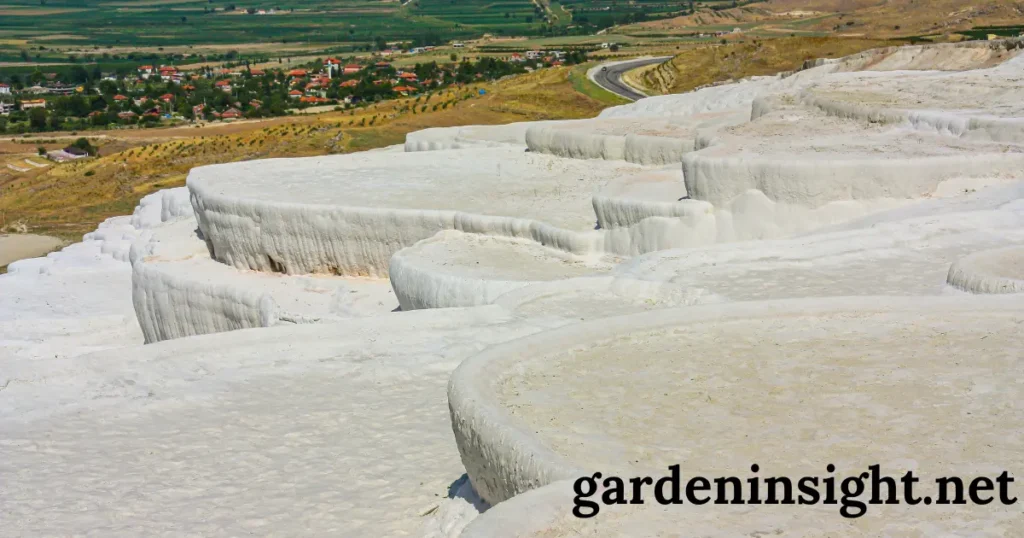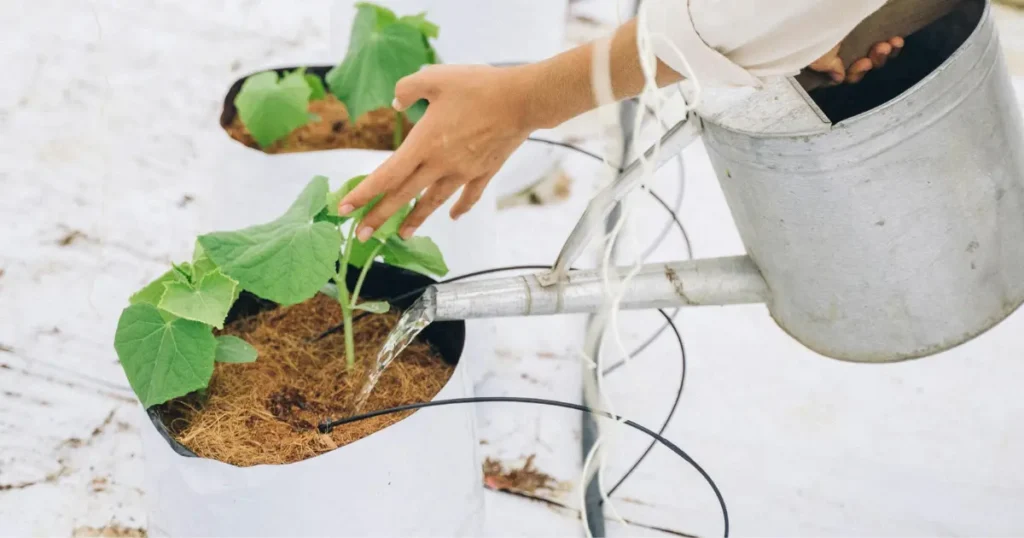Calcium carbonate, commonly known as lime, is a naturally occurring mineral found in rocks, shells, and even eggshells. Gardeners often use it to improve soil health and boost plant growth. But is Limestone Powder good for gardens? The answer is: it depends.
While calcium carbonate offers several benefits, it’s crucial to understand how it works and when to use it to maximize its positive effects.
This article will explore the various ways calcium carbonate can impact your garden, including its effects on soil pH, plant growth, and nutrient availability. We’ll also discuss how to use it effectively and address common concerns.
What is Calcium Carbonate?

Calcium carbonate is a chemical compound with the formula CaCO3. It’s a common substance found in many forms, including limestone, chalk, and marble. In agriculture and gardening, Garden Lime is primarily used as a liming agent to raise soil pH and provide calcium to plants.
How Does Calcium Carbonate Affect Soil pH?
One of the primary benefits of calcium carbonate for gardens is its ability to raise soil pH. When added to acidic soil, calcium carbonate reacts with the excess hydrogen ions, neutralizing the acidity and increasing the pH. This is important because many plants thrive in slightly acidic to neutral soil (pH 6.0 to 7.0).
Effects of Soil pH on Nutrient Availability
| pH Range | Nutrient Availability |
|---|---|
| 6.0 – 7.0 | Most nutrients are readily available |
| Below 6.0 | Reduced availability of phosphorus, calcium, and magnesium |
| Above 7.0 | Reduced availability of iron, manganese, and zinc |
Effect of Calcium Carbonate on Plant Growth
Calcium is an essential nutrient for plant growth. It plays a vital role in cell wall development, strengthens plant tissues, and helps with nutrient uptake. Calcium carbonate provides a source of calcium for plants, promoting healthy growth and development.
Calcium Carbonate for Plants
Calcium carbonate is a powerful tool for promoting robust plant growth and vitality. Serving as a readily available source of calcium, it strengthens cell walls, improves nutrient uptake, and enhances overall plant health.
By utilizing calcium carbonate, you can prevent calcium deficiencies that lead to stunted growth, blossom-end rot, and other physiological disorders.
Whether used as a soil amendment or foliar spray, calcium carbonate contributes to stronger root systems, increased fruit production, and improved resistance to pests and diseases, ensuring your plants thrive in any environment.
Signs of Calcium Deficiency in Plants:
- Stunted growth
- Blossom-end rot in tomatoes and peppers
- Tip burn in lettuce and cabbage
- Weak stems and leaves
By adding calcium carbonate to your garden, you can help prevent calcium deficiency and ensure your plants have the nutrients they need to thrive.
Calcium Carbonate for Soil

Besides raising pH and providing calcium, calcium carbonate also improves soil structure. It helps to:
- Increase water infiltration and drainage in clay soils
- Improve aeration in compacted soils
- Enhance the activity of beneficial soil microorganisms
These improvements contribute to a healthier soil environment that supports robust plant growth.
How to Use Calcium Carbonate in Your Garden
Before using calcium carbonate, it’s essential to test your soil pH. This will help you determine if your soil needs liming and how much to apply. You can purchase a soil test kit from a garden center or send a soil sample to a laboratory for analysis.
Applying Calcium Carbonate:
- Choose the right type: Calcium carbonate is available in different forms, including powdered lime, granular lime, and pelletized lime. Choose the form that best suits your needs and application method.
- Apply evenly: Spread the Limestone Powder evenly over the soil surface using a spreader or by hand.
- Incorporate into the soil: Work the calcium carbonate into the top few inches of soil using a rake or tiller.
- Water thoroughly: Water the area thoroughly after application to help activate the lime.
Recommended Application Rates for Calcium Carbonate
| Soil Type | pH Range | Application Rate (pounds per 100 square feet) |
|---|---|---|
| Sandy Soil | 5.0 – 5.5 | 5 – 10 |
| Loamy Soil | 5.0 – 5.5 | 10 – 15 |
| Clay Soil | 5.0 – 5.5 | 15 – 20 |
Does Calcium Increase pH in Water?

Yes, calcium carbonate can increase the pH of water. When Limestone Powder dissolves in water, it releases calcium ions and carbonate ions. The carbonate ions react with water to form bicarbonate and hydroxide ions, which increase the pH of the water.
How to Reduce Calcium Carbonate in Soil
If your soil has excessive calcium carbonate, leading to a high pH, you can take steps to reduce it. Some methods include:
- Adding sulfur: Elemental sulfur oxidizes in the soil, producing sulfuric acid, which lowers pH.
- Adding organic matter: Organic matter, such as compost and peat moss, can help to buffer the soil and reduce pH over time.
- Growing acid-loving plants: Some plants, such as blueberries and azaleas, prefer acidic soil and can help to lower pH naturally.
Conclusion
Calcium carbonate can be a valuable addition to your garden, especially if you have acidic soil. It helps to raise soil pH, provide calcium to plants, and improve soil structure.
However, it’s crucial to use it correctly and monitor your soil pH to avoid over-application.
By understanding the benefits and potential drawbacks of calcium carbonate, you can make informed decisions about using it in your garden and ensure your plants have the best possible environment to thrive.
FAQs
Some of the frequently inquired questions about use and impact of calcium carbonate on plants are as follow:
Is calcium carbonate safe for pets?
Generally, calcium carbonate is safe for pets. However, it’s always best to keep pets away from freshly applied lime until it has been watered in and the dust has settled.
Can I use calcium carbonate in potted plants?
Yes, you can use Limestone Powder in potted plants. However, it’s essential to use a smaller amount than you would for garden soil and monitor the pH of the potting mix regularly.
What are the other uses of calcium carbonate?
Besides gardening, calcium carbonate has various applications, including:
- Construction: as a building material and ingredient in cement
- Pharmaceuticals: as an antacid and calcium supplement
- Food industry: as a food additive and anticaking agent
Where can I buy Limestone Powder for my garden?
You can purchase calcium carbonate at most garden centers, home improvement stores, and online retailers.
